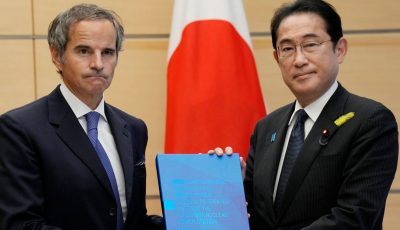Sh*ft happens
The word “sh*t” usually catches folks’ attention, it being a “no-no” in polite circles, and it is the most common expletive in the English language gaining acceptance, if not respectability, among many groups. But we are not in our old earthy self today.
Thomas Kuhn wrote in the Structure of Scientific Revolution that paradigm shifts happen when our current operating mental model changes from one form to another, e.g., flat earth to circular earth, or the earth-centric universe to solar systems and galaxies, and a radical transformation ensues. Material and social sciences have not been the same since, and even normal discourse has adopted the metaphor of “paradigm shift” into its vocabulary.
The wars of the 20th century are historically a fight for crude. Once the prerogative of royals and their empires, colonies began to take seriously their equity in the precious black gold underneath their lands. One can trace all the skirmishes that led to the world wars and encounters after and discover that they involved quarrels over access to oil.
My personal paradigm shift happened on the day MLK, Jr. was assassinated. I was in a car accident that made me appreciate the lifestyle of “dead man walking,” followed by the earthrise of 1968 that defined my fealty to a planet rather than to a nation-state or ethnic group. It was the challenge of human development in India, in the State of Maharashtra where the task was endless and seemingly insurmountable, that I became convinced the selfhood in the business of catalyzing change is about the expenditure of one’s life, not the accumulation of accolades for achievements. I was Gandhi’s “nobody,” a doormat in history, and learned to just be that!
Paradigm shifts are happening in the area of climate change, as wet regions get to be too dry, and dry regions get to be too wet; formerly solid tectonic foundations are suddenly areas of quakes. Fissures are presumably getting tectonics dislodged by the added fluidity under from the melting of the ice caps.
The smog alert in north China last week dramatized the need to manage carbon emissions from coal, the effects of which affects 360 degrees of the planet, at the same time, cities like Beijing with its population and catch-up infrastructures has to divert fresh water from the lowlands south for its needs, opening another intrusion on the fragile ecological balance.
For 400 years, the nation-state as a political form evolved, and old lines of sovereignty are being challenged in a world where something like climate change, or the Internet, does not recognize national boundaries. For the convenience of former colonizers, there was a “gentleman’s agreement” after WWII that colonial bounds were not going to be altered, so you have nations in the Sub-Afrikan area being stitched together on the balance of perpetual conflict, more so as nation-states are tied to the oil interests of the West.
With no national border secure in cyberspace, Internet security has become a buzzword, though many still uses it to define military alliances. The scandal of U.S. forces in Japan and Korea, and the continuing meddling of the U.S. in Philippine and Vietnam affairs would be laughable if it were not dangerous. The U.S. clearly needs to confront its economic dependence on its military might. The CNMI economy, sadly, is totally dependent on Uncle Sam’s western Pacific military interests.
The U.S. strategy of air strikes on the Islamic State begs the Watergate wisdom to “trace the money.” Jets from Arab countries are not mirages from the desert, nor are the rockets and missiles bought at WalMart; they are hardware acquired from oil revenues to keep EU and U.S. companies humming.
That there is no money in peace, but a lot to be made in war, is obvious. Many want to play. When NoKor’s No. 2 man surprisingly shows up at the Asian Games’ closing, it unhinged many players in the armaments industries, so we saw ranking State personnel immediately show up in Seoul and Japan. Suddenly, SoKor and NoKor exchange live fires, India and Pakistan revive dormant sparks in Kashmir, EU and Russia fight it out by proxy in Ukraine and Crimea, while Kurds riot against Turkey for not intervening in the border Syrian town of Kobani when they really want (and need) to create a Kurdistan. The global stock market adjusts accordingly with commercial gain being the sole consideration. Human lives are dispensable.
Civil disobedience is a tactic to break existing law on the ground that one’s life is worth the sacrifice for a higher law. The idealism of the young has now turned into growing delinquent behavior of the bored rich and disillusioned hopeless. HK is becoming an object lesson for agents of change; momentary outbursts may be tolerated but sustained revolution is a costly enterprise.
Paradigm shifts. Change is in the nature of life. Jerusalem, NYC, Nairobi, Rio, Tokyo, Brussels, and Beijing need to catch up with the learning curve. Sh*ft happens.



























